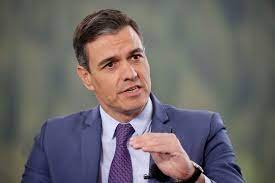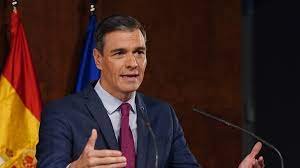Pedro Sanchez Re-elected as Spanish Prime Minister
Pedro Sanchez has secured his position as the Prime Minister of Spain in a significant re-election that holds crucial implications for the country’s political landscape. This achievement emerged after a successful parliamentary vote where Sanchez garnered the necessary support to continue leading the Spanish government. His re-election marks a pivotal moment in Spain’s contemporary political narrative.
Sanchez, heading the Spanish Socialist Workers’ Party (PSOE), has navigated complex political terrains, especially considering the challenges posed by the COVID-19 pandemic. His policies and strategies during these trying times have been under intense scrutiny, making this re-election a moment of both validation and increased expectations.
The Prime Minister’s continuation in office signifies stability and continuity in the government’s policies, especially concerning issues like economic recovery, healthcare reforms, and social welfare programs. This continuity is crucial for students aspiring to enter government services, including civil services, where a comprehensive understanding of Spain’s governance and policies is imperative.

Why this News is important:
Continuity in Leadership and Policy Stability
Pedro Sanchez’s re-election is pivotal due to the continuity it promises in Spain’s governance, especially amidst global challenges like the COVID-19 pandemic.
Implications for Aspiring Civil Servants
For students aiming for civil service positions, understanding the political stability and its impact on policy decisions is crucial, making this news pertinent for their preparation.
Influence on International Relations
This development holds significance in terms of Spain’s international alliances, trade policies, and diplomatic strategies, essential aspects in various government exam syllabi.
Historical context:
Spain, known for its varied political history, has experienced turbulent times marked by shifts in power dynamics. From its transition to democracy after Franco’s regime to periods of economic turmoil, the country has showcased resilience and adaptability in its governance.
Pedro Sanchez’s initial rise to power in 2018 was through a vote of no confidence against his predecessor, Mariano Rajoy, displaying the changing tides in Spain’s political climate. Since then, Sanchez has been at the helm, navigating through a landscape defined by internal and external challenges.
Key Takeaways from “Pedro Sanchez Re-elected as Spanish Prime Minister”:
| Serial Number | Key Takeaway |
|---|---|
| 1. | Continuity in Spain’s governance with Pedro Sanchez’s re-election. |
| 2. | Importance of policy stability for students preparing for government exams. |
| 3. | The impact of Spain’s political landscape on international relations. |
| 4. | Historical context of Spain’s political transitions. |
| 5. | Pedro Sanchez’s journey from a vote of no confidence to re-election. |
Important FAQs for Students from this News
Q: Who is Pedro Sanchez?
A: Pedro Sanchez is the leader of the Spanish Socialist Workers’ Party (PSOE) and the current Prime Minister of Spain.
Q: What is the significance of Pedro Sanchez’s re-election?
A: His re-election ensures continuity in Spain’s governance and policies, impacting various sectors including international relations and domestic reforms.
Q: How does this news affect students preparing for government exams?
A: It is essential for exam preparation as it offers insights into Spain’s political landscape, policies, and their implications, which are often part of exam syllabi.
Q: What challenges did Pedro Sanchez face during his tenure?
A: His tenure faced challenges such as navigating the COVID-19 pandemic, economic reforms, and political stability amidst a fragmented parliamentary scenario.
Q: What historical events led to Pedro Sanchez’s rise to power initially?
A: Sanchez initially rose to power in 2018 through a vote of no confidence against the then-Prime Minister, Mariano Rajoy.
Some Important Current Affairs Links

















